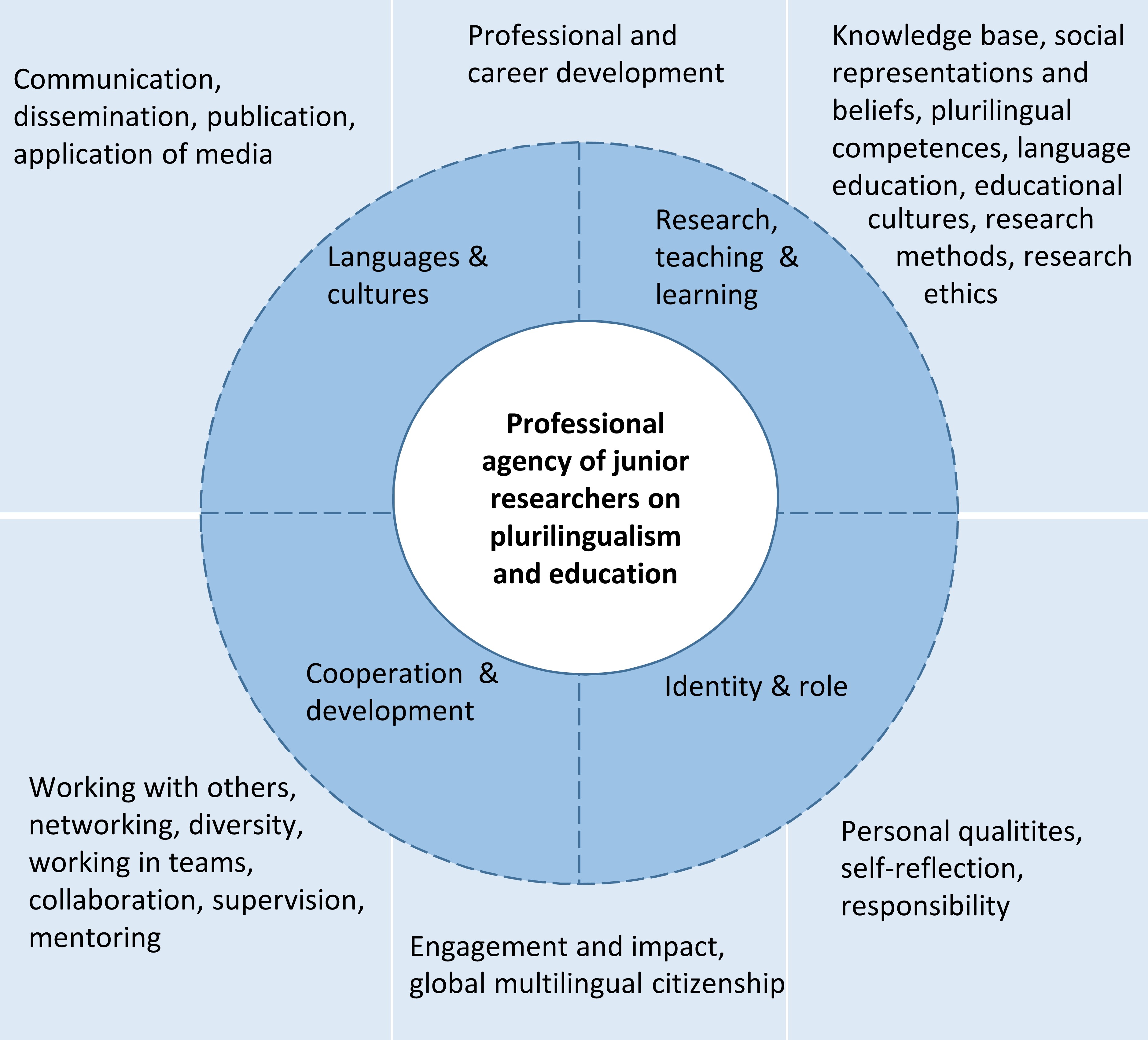
The developing ENROPE Competency Model defines competences that junior researchers on plurilingualism need in order to meet the demands and challenges of research and educational contexts that are increasingly plurilingual and multicultural. It builds on a model developed by Legutke/Schart (2016) that defines the professional competence of language teachers on the basis of four categories: language & culture; research teaching & learning; cooperation & development; identity and role (cf. Legutke/Schart 2016: 18) and transfers them to the field of research. Instead of their notion of professional competence, we use the term agency to focus on the individual junior researcher and place their activities within a wider social context. As we concentrate on plurilingual research contexts we have expanded the concept of “culture” and added the term “research”. In addition, we used the Researcher Development Framework (cf. Vitae 2010) in order to define the specific competences of researchers in the field of multi- and plurilingualism. While the inner circle of our model names parameters related to the researcher him- or herself, the outer categories focus on research in an international research network on multilingualism (as, for example, carried out within the specific framework of ENROPE). All categories interact with and depend on each other.
Acknowledgements:
We kindly thank M. Legutke and M. Schart for permitting the use of their model and the Vitae Group for the authorization to apply their Researcher Development Framework.
References:
Legutke, M., & Schart, M. (2016). Fremdsprachliche Lehrerbildungsforschung: Bilanz und Perspektiven. In M. K. Legutke & M. Schart (Eds.), Fremdsprachendidaktische Professionsforschung: Brennpunkt Lehrerbildung (pp. 9–46). Tübingen: Narr Francke Attempto.
Vitae, Careers Research and Advisory Center (2010): Researcher Development Framework. www.vitae.ac.uk/rdf.